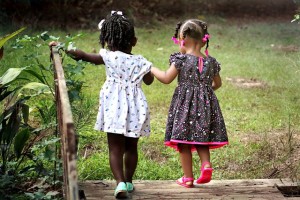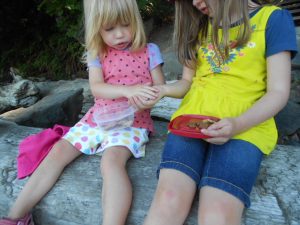The Olympic Games champion sports and also friendly understanding among nations. Today’s Olympic-inspired post is friendship skills for kids.

The Olympic tradition is excellence in sports. The Games also promote friendly rivalry as a tool for international peace and harmony. The Olympic experience for athletes includes meeting people from other nations around the world. They stay in the village, sharing meals, playing video games, trading pins, enjoying time in the pool and gym, competing at table tennis and snooker, and jamming in the music room. . The Olympic Village is a sort of Disneyworld for older kids and adults. There’s a multi-faith center and quiet spaces too. The athletes not only make friends, they make memories that last a lifetime
Friendship skills, like other skills, develop and grow. Kids need opportunities to connect with friends and time to practice. Two early social skills are taking turns and sharing. Taking turns is a basic part of all relationships. Babies do not yet know words but still have ‘conversations’ with us. They make some kind of noise, then stop and listen while we talk. Give and take. When older toddlers interact with each other, they make not like taking turns but they usually understand. Throwing and catching a ball is a fun game for taking turns and there are many others. Each day will likely include times for practicing taking turns at home and out and about.

Sharing can be a more complicated skill. Kids need to learn to share with others and also to ask others to share with them. For kids to develop the understanding about how sharing works, they need our support and example. “It’s a good idea to be realistic about a preschooler’s ability to share. At this age, most children are still learning and can find it hard to understand other people’s thoughts and emotions.” (Raising Children Network, Sharing and Learning to Share)
Friendship will have different stages. First friends may be the ones who are there at the time. Later on, friends will be ones who share interests and experiences. During the Olympics, we saw dozens of times where friends were there to celebrate with athletes who had won and to support those who didn’t. They shared cheers and tears. Friendliness between nations can grow from friendship skills for kids. How do you help your child develop them?
